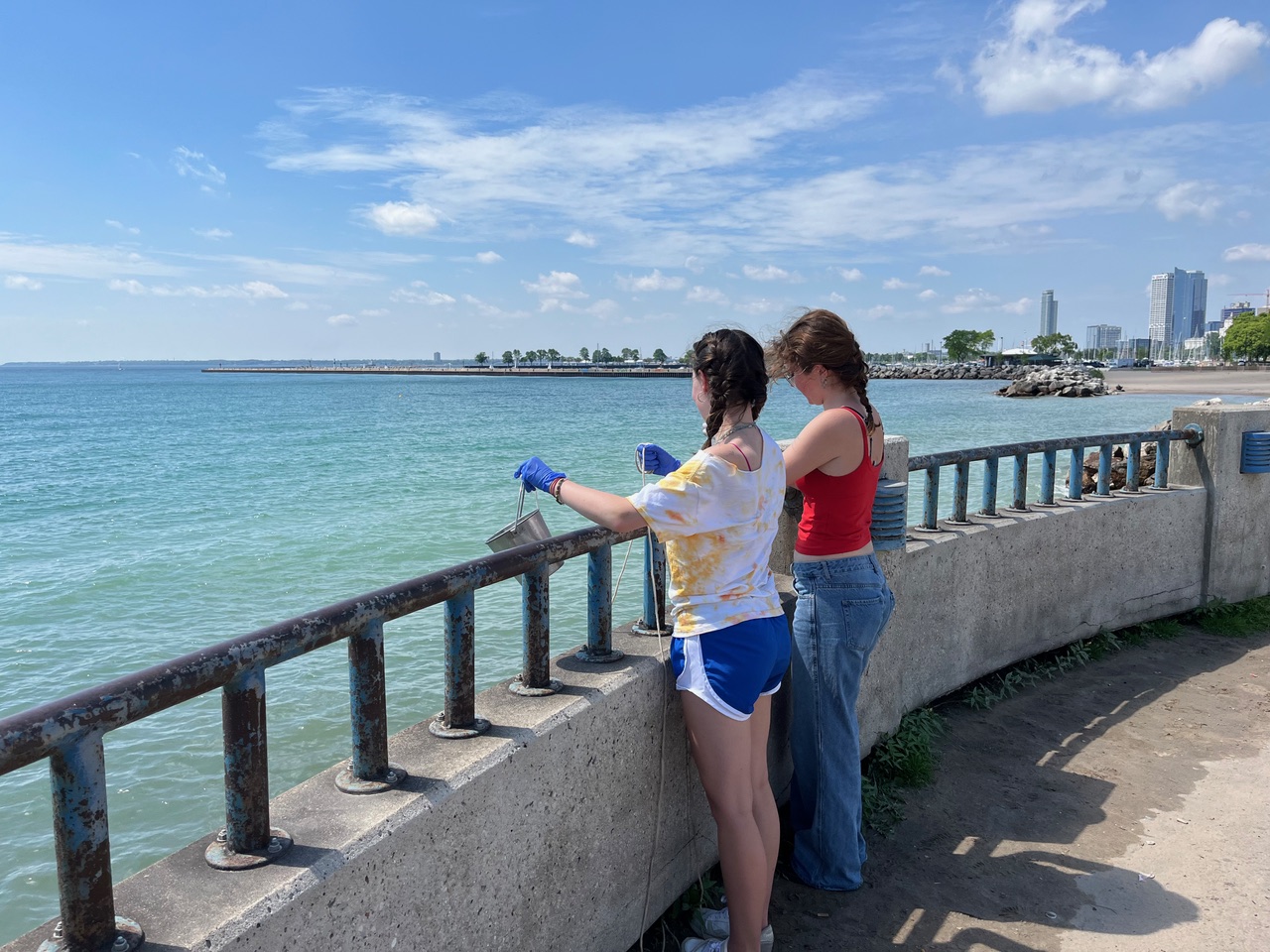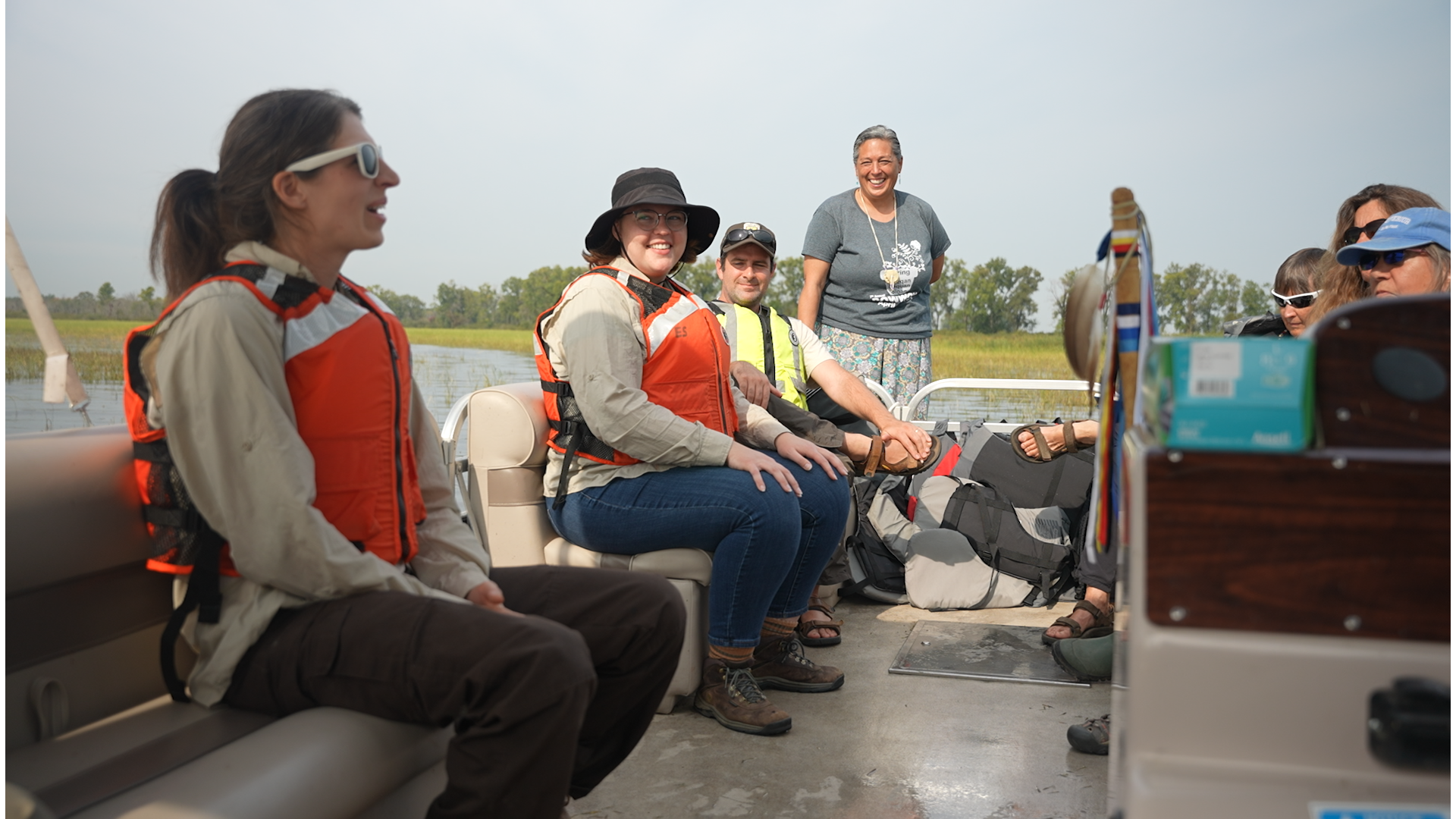By Elise Ertl, University of Wisconsin-Superior
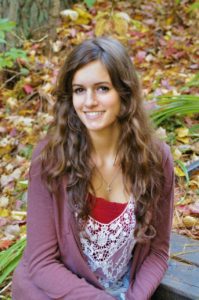
Brenna Denamur. Submitted photo
Over the course of ten weeks, eight interns are coming together to share their experiences. Their Wisconsin Sea Grant internships, targeted toward underserved and indigenous communities, are taking place this summer.
The eight students—Brenna DeNamur, Celeste Gunderson, Isabel St. Arnold, Sarah Schiltz, Eliza Suchan and Claire Finucane, Emma Holtan and Elise Ertl—are participating in this inaugural internship program, rich in mentoring and, in half of the opportunities, focused on tribal issues.
Brenna DeNamur, resident of Elcho, Wisconsin, and current student at University of Wisconsin-Madison majoring in wildlife ecology and life sciences, has a passion for translating her knowledge from research to educating the public and conserving the natural world.
DeNamur’s internship focuses on traditional ecological knowledge and Great Lakes literacy. She is working on two projects related to Great Lakes literacy, one focusing on constructing culturally responsive content and curricula with a tribal partner and the second to support ongoing education projects. She hopes to inspire and educate the Wisconsin public to enhance Sea Grant’s and her personal mission to conserve the natural world, especially the wonders and resources associated with the Great Lakes watershed.
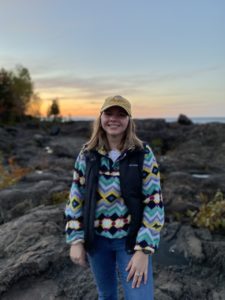
Claire Finucane. Submitted photo
This internship will allow her to apply her writing and videography skills in a professional setting, while incorporating her background in ecology. After she graduates, DeNamur plans to pursue a career in environmental communication.
Claire Finucane, a student at the UW-Madison, is applying her knowledge of environmental science and conservation biology this summer in her Great Lake geospatial data visualization internship.As she works with both people from Sea Grant and the U.S. Environmental Protection Agency, she hopes to gain perspective on how these organizations operate and accomplish their goals. With the focus of her internship being on data visualization, her goals include gaining more skills and to experience working with data and creating useful ways to present it. She hopes to grow the GIS skills that she has been developing, which she can then use to help solve problems concerning the environment.
Finucane will graduate in the fall of 2020 to pursue a position related to ecology through agencies such as the EPA, department of natural resources or National Park Service. While she hopes to eventually pursue a master’s degree, she is eager to gain work experience after receiving her undergraduate degree.
Emma Holtan, a graduate of Northland College in Ashland, Wisconsin, just received her B.S. in water science with an emphasis in water resources.
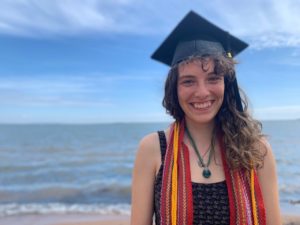
Emma Holtan. Submitted photo
This summer she is taking on the position of the flood resiliency intern through the Wisconsin Department of Health Services, which partnered with Sea Grant and the Association of State Floodplain Managers. The internship requires working to finalize and pilot the Flood Resiliency Scorecard, which has been an ongoing project between the partnered organizations. The scorecard aims at supporting Wisconsin communities to comprehensively assess their flood risk potential and increase their resiliency. This summer, she is continuing to make the scorecard and making recommendations accessible and understandable for communities, compiling resources for the scorecard, investigating ways to put the scorecard online and potentially working with a community in Northern Wisconsin to pilot the scorecard.
She hopes to use the knowledge gained from this internship to propel her future goals to work with community response to the climate crisis, specifically regarding water.
Isabel St. Arnold, a student at Northwestern University, is using her background and knowledge in social policy, civil engagement and Native American and Indigenous studies to advance her work through the foreground and significance of manoomin through education and outreach internship with Wisconsin Sea Grant.
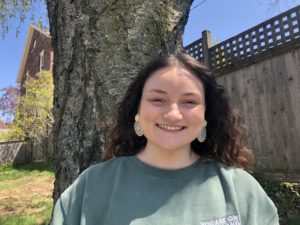
Isabel St. Arnold. Submitted photo
St. Arnold explains the significance of this project: “As someone who is Keweenaw Bay Ojibwe, manoomin (wild rice) has always been culturally significant to me. Through this internship, I hope to not only build on my already existing knowledge of manoomin, but to also help create educational materials that will aid in cultivating awareness in others of the value of manoomin and why we must work to use good management practices to protect manoomin.”
St. Arnold wants to help create materials that will be useful and accessible to both Native communities and non-native communities and to work to be sure that these resources are created in a way that puts Ojibwe knowledge on manoomin and best practices for manoomin at the forefront.
After she graduates from Northwestern, St. Arnold hopes to go to graduate school and pursue language courses in Ojibwe. “Currently, I’m interested in educational policy and also the ways in which we educate individuals in other places besides schools/classrooms.” For this reason, she knows education will always be a large part of her career.
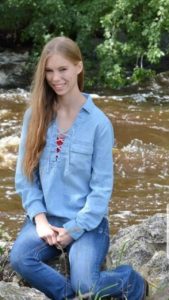
Eliza Suchan. Submitted photo
Eliza Suchan prepares for change amid the COVID-19 pandemic as she and her mentor from Wisconsin Sea Grant, Titus Seilheimer, find new ways to conduct aquatic science research and navigate her “fish guts” internship. Originally, her project was to collect fish digestive systems to find out what they have been consuming, looking for invasive species specifically, and then later, inform anglers about her work. Her project has since been changed to finding places to place signs to inform anglers about invasive speices, since she can no longer interact with them in person. Her internship responsibilities have also increased to include making a log of companies who remove and put in docks in lakes, which will allow her to trace the spread of invasive species.
Suchan has been a part of a local environmental group in Manitowoc, Wisconsin, Friends of the Branch River. The group has sponsored and supported her journey to pursue aquatic sciences, leading her to study environmental science and management at UW-Green Bay and UW- Stevens Point.
With her current internship, Suchan hopes to further her understanding of invasive species and what she can do to help prevent their spread.
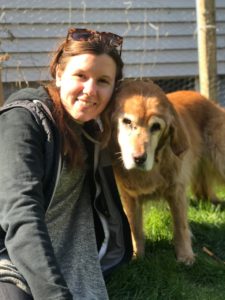
Celeste Gunderson and friend. Submitted photo
As a people-environment geography and environmental studies major at UW-Madison, Celeste Gunderson will continue her research from last year through the internship, green infrastructure, climate adaptation and geodesign, where still will explore geodesign. For this, Gunderson will use GIS technologies to create planning scenarios.
Gunderson explains, “I will be using a geodesign method in the ArcGIS program GeoPlanner to investigate how green infrastructure can be used to mitigate predicted increases in precipitation due to climate change.” She will also be working on multiple other projects related to green infrastructure and coastal resilience.
Her goal for the future is to continue researching climate change impacts, both locally and globally and learn more about means of adaptation and mitigation. After graduation, she plans to pursue a graduate degree in geography to further examine environmental issues.
After graduating with a degree in biochemistry from Hartwick College in New York, Sarah Schiltz is continuing to pursue her goals through her promoting watershed health and citizen science internship.
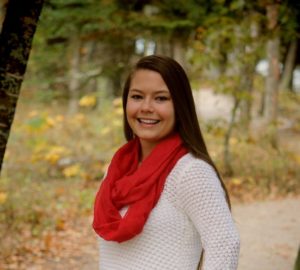
Sarah Schiltz. Submitted photo
Throughout this summer, Schiltz will help create and plan a long-term, community-science monitoring program that will help provide crucial data about the health of the watershed, which can be used to assess long-term trends and evaluate restoration efforts.
Schiltz says, “The bay of Green Bay is one of the Great Lakes’ most ecologically and economically important coastal regions. However, the bay is greatly impacted by excessive nutrient and sediment pollution and a ‘dead zone’ in the summer. The Wequiock-Mahon Watershed, along the east shore of the bay, has enjoyed a long history of community and university collaboration in identifying water quality problems, conservation and watershed planning.”
After finishing the internship, she plans to eventually go back to school to pursue a degree in a more specialized area.
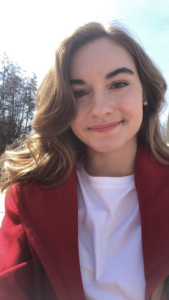
Elise Ertl. Submitted photo
Elise Ertl, a student at UW-Superior, will combine her two majors, biology and writing, in her internship, communicating coastal science, with Wisconsin Sea Grant this summer.
The internship will consist of three tasks. Two include assisting in planning the next season of River Talks, a monthly science café in the Twin Ports area that focuses on issues regarding the St. Louis River, and working on podcasts. The third task is to work with the Native American perspective on aquatic invasive species. There is not a lot of information currently available on this topic, increasing the need for research to better understand views on aquatic invasive species. She hopes to gain experience with communicating and writing for the science community.
After graduation, Ertl plans to continue her education in environmental journalism.



